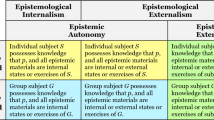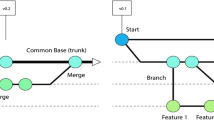Abstract
We carry out most of our epistemic projects as groups. Networks of individuals work together to identify questions, accumulate evidence, and settle on answers that lie beyond the ken of individual knowers. This is particularly important for controversial issues. And when it comes to ideologically contested issues, groups that are ideologically diverse in their membership are epistemically superior to groups that are ideologically homogenous. That’s because ideologically diverse groups are better at (a) identifying a representative sample of important questions, (b) developing a wider range of potential answers, and (c) evaluating the evidence for and against each option. Awareness of this point produces a competence defeater for the relevant outputs of ideologically homogenous groups: they don’t deserve the high level of trust we often grant them. That, among other things, goes a long way towards justifying the public’s decreased trust in institutions like social networks, journalism, and universities.
Similar content being viewed by others
Notes
“Ceteris paribus” is meant to flag a generalization and side-step content-specific counterexamples. For example, perhaps individuals are better than groups at figuring out whether I’m hungry right now. I’ll do a better job determining the truth of that proposition than any group you could assemble. But that’s not a very interesting sort of objection. The question is whether, in general, you would be better off relying on a group rather than an individual to answer a question before you knew the content of that question. I argue in what follows that the answer is clearly to prefer the group.
I’m assuming here that the group investigation is decentralized. If group investigation is rigidly controlled by a central authority figure, the group won’t ask as wide a range of questions as it otherwise would. In that case, it would be acting more like a single agent than a group. For this reason, decentralization is an important epistemic feature of groups but not one related to ideological diversity.
Interestingly, some groups are epistemically better than others because they communicate their evidence appropriately. This is an important but not obvious feature of group investigation. Consider again the anecdote from the fair. If each contestant knew the guess of the previous contestant, there would have been an obvious anchor bias. The group performed well because each member of the group was ignorant of the guesses of other members. This basic tendency has been dubbed the Zollman Effect, and it shows how scientists can improve a body of beliefs by limiting their communications with one another at the early stages of investigation (O’Connor and Weatherall 2019). Sharing results too early can discourage other scientists from taking up a problem (because they think it’s already solved) or bias those in the midst of their own research. This isn’t a point about how groups are epistemically better than individuals but still an important point about what makes a group epistemically effective.
For a scholarly account of an echo chamber, see Nguyen 2018: “An echo chamber is a social epistemic structure from which other relevant voices have been excluded and discredited.”.
Thanks to an anonymous reviewer for pointing out that ideological homogeneity is relativized to specific questions. A group of voters could be homogenous with regard to, say, tax policy and not to, say, affirmative action.
In fact, investment clubs with a good mix of men and women also outperform investment clubs with members of only one sex (Harrington 2010). This fits well with the overall thesis of this piece that diversity improves the epistemic power of groups.
I note as an aside that in some cases, it may still be rational for members of a group to stick to their controversial views even after they find out that the group suffers particular epistemic problems (for a defense of this, see Lougheed 2021). But whether it’s rational to do that from an individual’s perspective and whether the group retains its epistemic advantages are two different questions.
There are so many ways of doing this, so many caveats, and so many pitfalls, that the discussion of how best to improve the ideological diversity of a group is left for another project.
References
Al-Gharbi, M. (2023). “How well do US faculty reflect America? (Spoiler: not well)”. Heterodox Academy, January 24, 2023. https://heterodoxacademy.org/blog/how-well-do-u-s-faculty-reflect-america-spoiler-not-well/
Alford, J. R., Hatemi, P. K., Hibbing, J. R., Martin, N. G., & Eaves, L. J. (2011). The politics of mate choice. Journal of Politics, 73(2), 362–379.
Anderson, L. R., & Charles, A. H. (1997). “Information cascades in the laboratory,” The American Economic Review, 87(5):847–62. http://www.jstor.org/stable/2951328
Ballantyne, N. (2019). Knowing our limits. Oxford University Press.
Ballantyne, N., Celniker, J. B., & Dunning, D. (2022). Do your own research. Social Epistemology. https://doi.org/10.1080/02691728.2022.2146469
Bishop, B. (2008). The big sort: Why the clustering of like-minded America is tearing us apart. Houghton Mifflin.
Brenan, M. (2022). “Americans’ trust in media remains near record low”. Gallup, October 18, 2022. https://news.gallup.com/poll/403166/americans-trust-media-remains-near-record-low.aspx
Coleman, M. (2023). “SPIVA: 2022 year-end active vs. passive scorecard,” Index Fund Advisors https://www.ifa.com/articles/despite_brief_reprieve_2018_spiva_report_reveals_active_funds_fail_dent_indexing_lead_-_works
Cox, D. A., Streeter, R., Abrams, S.J., Clemence J. (2020). “Socially distant: how our divided social networks explain our politics,” American Survey Center https://www.americansurveycenter.org/research/socially-distant-how-our-divided-social-networks-explain-our-politics/
Cronin, A. H. (2018). “99.5% of Cornell faculty, academics’ donations given to left-leaning groups,” The Cornell Daily Sun, November 5, 2018 https://cornellsun.com/2018/11/05/99-5-cornell-faculty-academics-donations-given-to-left-leaning-groups/
Dellsen, F. (2020). The epistemic value of expert autonomy. Philosophy and Phenomenological Research, 100(2), 344–361.
Edsall, T. B., James, V. G., & Alice, R. C. (2004). “Redefining democratic fundraising,” The Washington Post July 24, 2004. https://www.washingtonpost.com/archive/politics/2004/07/24/redefining-democratic-fundraising
Freedman, D. H. (2010). Wrong: why experts* keep failing us--and how to know when not to trust them. (New York) Little Brown and Company.
Goguen, S. (2016). Stereotype threat, epistemic injustice, and rationality. In M. Brownstein & J. Saul (Eds.), Implicit bias and philosophy, volume 1: Metaphysics and epistemology (pp. 216–237). Oxford University Press.
Goldin, C., & Rouse, C. (2000). Orchestrating impartiality: The impact of “blind” auditions on female musicians. American Economic Review, 90(4), 715–741.
Groseclose, T. (2011). Left turn: How liberal media bias distorts the American mind. St. Martin’s Griffin.
Haidt, J. (2016). “New study indicates the existence of eight conservative social psychologists,” Heterodox Academy, January 7, 2016. https://heterodoxacademy.org/blog/new-study-indicates-existence-of-eight-conservative-social-psychologists/
Harper, Jennifer. (2009). “ABC employees donated heavily to Obama,” Washington Times, June 19, 2009 https://www.washingtontimes.com/news/2009/jun/19/abc-employees-donated-heavily-to-obama/
Harrington, B. (2010). Pop finance: Investment clubs and the new investor populism. Princeton University Press.
Horowitz, D., & Lehrer, E. (2020). “Political bias in the administrations and faculties of 32 elite colleges and universities: Center for the Study of Popular Culture, https://studentsforacademicfreedom.org/reports/political-bias-in-the-administrations-and-faculties-of-32-elite-colleges-and-universities/
Iyengar, S., Sood, G., & Lelkes, Y (2012). “Affect, not ideology: a social identity perspective on polarization.” Public Opinion Quarterly, 76(3). https://doi.org/10.1093/poq/nfs038
Janis, I. (1982). Groupthink. Houghton Mifflin Co.
Jones, J M. (2022). “Confidence in U.S. institutions down; average at new low,” Gallup, July 5. https://news.gallup.com/poll/394283/confidence-institutions-down-average-new-low.aspx
Joshi, H. (2020). What are the chances you’re right about everything? An epistemic challenge for modern partisanship. Politics, Philosophy & Economics, 19(1), 36–61.
Joshi, H. (2022). The epistemic significance of social pressure. Canadian Journal of Philosophy, 52(4), 396–410.
Kahneman, D. (2003). A perspective on judgment and choice: Mapping bounded rationality. American Psychologist, 58(9), 697–720.
Kelly, T. (2023). “Bias, norms, introspection, and the bias blind spot,” Philosophy and Phenomenological Research. https://doi.org/10.1111/phpr.12953
Klar, S. (2014). Partisanship in a social setting. American Journal of Political Science, 58(3), 687–704.
Ladd, E. C., Jr., & Lipset, S. M. (1975). The divided academy: professors and politics. New York: McGraw-Hill.
Langbert, M. (2018). “Homogenous: the political affiliations of elite liberal arts college faculty,” National Association of Scholars https://www.nas.org/academic-questions/31/2/homogenous_the_political_affiliations_of_elite_liberal_arts_college_faculty
Longino, H. (1990). Science as social knowledge: Values and objectivity in scientific inquiry. Princeton University Press.
Lougheed, K. (2021). The epistemic benefits of worldview disagreement. Social Epistemology, 35(1), 85–98.
Matheson, J. (2014). A puzzle about disagreement and rationality. Social Epistemology Review and Reply Collective, 3(4), 1–3.
McHugh, N. A., & Davidson, L. J. (2020). Epistemic responsibility and implicit bias. In E. Beeghly & A. Madva (Eds.), An introduction to implicit bias (pp. 174–190). Routledge.
Nguyen, C. T. (2020). Echo chambers and epistemic bubbles. Episteme, 17(2), 141–161. https://doi.org/10.1017/epi.2018.32
O’Connor, C., & Weatherall, J. O. (2019). The misinformation age: How false beliefs spread. Yale University Press.
Pasnau, R. (2020). “Bias and interpersonal skepticism,” Nous 1–20
Pew Research Center. (2014). “Political polarization in the American public.” Technical report
Povich, E. (1995). Exhibit 1–9: Washington bureau chiefs and correspondents https://www.mrc.org/exhibit-1-9-washington-bureau-chiefs-and-correspondents
Plotz, D. (2008). “Slate votes: Obama wins this magazine by a rout,” Slate, October 28, 2008 https://slate.com/news-and-politics/2008/10/how-slate-sstaff-and-contributors-are-voting-on-election-day.html
Solomon, M. (2006). Groupthink versus the wisdom of crowds: The social epistemology of deliberation and dissent. The Southern Journal of Philosophy, 44, 28–42.
Sunstein, C. (2003). Why societies need dissent. Harvard University Press.
Sunstein, C. (2019). Conformity. New York University Press.
Surowiecki, J. (2005). The wisdom of crowds. Random House.
Treisman, R., & David Y.-B. (2017). “Yale faculty skews liberal, survey finds,” Yale Daily News, September 14, 2017. https://yaledailynews.com/blog/2017/09/14/yale-faculty-skews-liberal-survey-shows/
Vavova, K. (2018). Irrelevant influences. Philosophy and Phenomenological Research, 96, 134–152. https://doi.org/10.1111/phpr.12297
Wilson, T., & Brekke, N. (1994). Mental contamination and the debiasing problem. In T. Gilovich, D. Griffin, & D. Kahneman (Eds.), Heuristics and biases (pp. 185–200). Cambridge University Press.
Acknowledgements
An early version of this paper was presented at the Bled Philosophical Conference in Bled, Slovenia, in June of 2023. The author is grateful for the helpful feedback provided by colleagues at that conference
Author information
Authors and Affiliations
Corresponding author
Ethics declarations
Conflict of Interest
The author declares no competing interests.
Additional information
Publisher's Note
Springer Nature remains neutral with regard to jurisdictional claims in published maps and institutional affiliations.
Rights and permissions
Springer Nature or its licensor (e.g. a society or other partner) holds exclusive rights to this article under a publishing agreement with the author(s) or other rightsholder(s); author self-archiving of the accepted manuscript version of this article is solely governed by the terms of such publishing agreement and applicable law.
About this article
Cite this article
McBrayer, J.P. The Epistemic Benefits of Ideological Diversity. Acta Anal (2024). https://doi.org/10.1007/s12136-023-00582-z
Received:
Accepted:
Published:
DOI: https://doi.org/10.1007/s12136-023-00582-z




